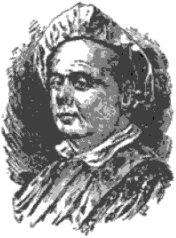Joseph Green | |
|---|---|
 | |
| Born | 1706 |
| Died | December 11, 1780 (aged 73–74) London, England |
| Education | Harvard University |
| Occupation(s) | Clergyman, poet |
| Signature | |
 | |
Joseph Green (1706 – December 11, 1780) was an American clergyman and poet who published The Disappointed Cooper in 1743, mocking an old man's marriage to a much younger woman as well as criticizing the behavior of some New Light ministers.
YouTube Encyclopedic
-
1/3Views:6965 87512 746
-
Cave Canem: Poets on Craft with Lillian-Yvonne Bertram and Jennifer Chang | The New School
-
Associate Array In PHP Tamil
-
With Paul Celan into the 21st Century: Pierre Joris || Woodberry Poetry Room
Transcription
Biography
Joseph Green was born in Boston, Province of Massachusetts Bay, in 1706.[1] He graduated from Harvard University in 1726, and became a successful businessman.[2]
He has been called "the foremost wit of his day." He often exchanged parodies and satiric poems with another Boston wit, Mather Byles.[3]
Joseph Green's satirical poetry[4] includes "To Mr. B Occasioned by His Verse" and "To Mr. Smibert on Seeing His Pictures". He also wrote "The Poet's Lamentation for the Loss of his Cat, which he us'd to call his Muse", "On Mr. B—s's singing an Hymn of his own composing", "To the Author of the Poetry in the last Weekly Journal", "A True Impartial Account of the Celebration of the Prince of Orange's Nuptials at Portsmouth", "Inscription under Revd. Jn. Checkley's Picture", "A fig for your learning, I tell you the Town" and "Hail! D––p––t of wondrous fame".
His "Entertainment for a Winter's Evening" is a satire on Boston's first Masonic procession, held in 1749.[3]
Green was one of the members who signed the attestation of veracity regarding Phillis Wheatley's authorship of Poems on Various Subjects, Religious and Moral.[5]
A Loyalist, Green fled from North America to England during the American Revolution and was named in the Massachusetts Banishment Act of 1778. He died in London on December 11, 1780.[2] In his will, he left 100 pounds to his slave, Plato.[6]
References
- ^ "Specimens of American Poetry, Samuel Kettell". Referenced July 9, 2011
- ^ a b The National Cyclopaedia of American Biography. Vol. VIII. James T. White & Company. 1924. p. 451. Retrieved January 27, 2021 – via Google Books.
- ^ a b Gates, Henry Louis Jr. (2003). The Trials of Phillis Wheatley: America's First Black Poet and Her Encounters With the Founding Fathers, New York: Basic Civitas Books. ISBN 978-0-465-01850-5, p. 10
- ^ Joseph Green Summary.
- ^ "American Poetry: The Seventeenth and Eighteenth Centuries". Referenced May 17, 2010
- ^ Gates, Henry Louis Jr. (2003). The Trials of Phillis Wheatley: America's First Black Poet and Her Encounters With the Founding Fathers, New York: Basic Civitas Books. ISBN 978-0-465-01850-5, p. 12
